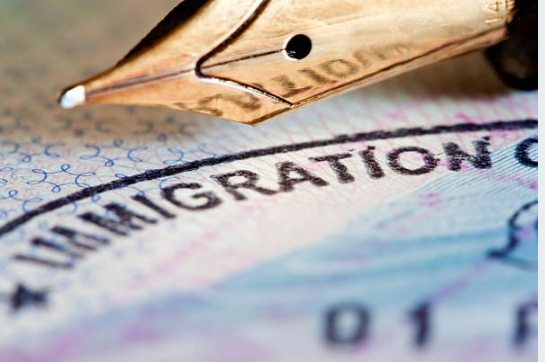Spain has a complex inheritance tax system, which varies by region. The region of Andalusia offers certain advantages when it comes to inheritance tax exemptions and reductions, particularly for close relatives like children and spouses. However, navigating inheritance law can be challenging, especially for non-residents. This guide provides a detailed overview of inheritance tax rates, exemptions, and the process of inheriting property in Andalusia, along with specific information for non-residents.
1. Inheritance Tax in Andalusia
Inheritance tax in Spain is governed by both national and regional laws. In Andalusia, the regional government has implemented tax relief measures to make the inheritance tax system more favorable, particularly for family members. These measures aim to reduce the tax burden for close relatives, such as children, spouses, and parents.
Key Points to Note:
- Inheritance tax is progressive, meaning that the more valuable the estate, the higher the tax rate.
- Regional differences: Andalusia offers more favorable exemptions compared to some other regions in Spain.
- Tax is paid by the heir, not the estate, and is calculated based on the value of the inherited assets after deductions.
2. Inheritance Tax Rates in Andalusia
Inheritance tax in Andalusia varies based on the value of the inherited estate and the relationship between the heir and the deceased. The tax rates in Andalusia are progressive, starting from around 7.65% for small estates and increasing with the estate’s value.
Tax Rates by Relationship:
- Spouse and Children (Direct Heirs):
- The tax rates for children and the spouse can range from 7.65% to 34%, depending on the estate’s value. The rates are progressive, meaning they increase as the value of the inheritance rises.
- Exemptions and deductions: Andalusia provides generous exemptions for close family members such as children, spouses, and parents. For example, children may receive a large reduction on the taxable value of the estate, reducing their overall tax liability.
- Other Relatives (Siblings, Nephews, etc.):
- Distant relatives such as siblings, nieces/nephews, and cousins will face higher inheritance tax rates, typically starting at 21% and increasing based on the estate’s value.
- The exemptions and reductions for these relatives are significantly lower than for direct descendants.
- Non-Relatives:
- Non-relatives who inherit from a person who is not their direct ancestor (such as friends or distant acquaintances) will also face higher rates, often above 30%.
Progressive Tax Scale:
- Direct heirs (spouse, children) receive a discount on tax rates, which can result in significantly lower tax burdens compared to more distant relatives. For example:
- Children: If a child inherits property, the tax rate will range from 7.65% to 34%, depending on the value of the estate.
- Spouses: Spouses may benefit from similar exemptions, although the tax rate can reach 36% for larger estates.
- Siblings and others: For non-direct heirs, the tax rates are higher and can start at 21% and increase.
3. Inheritance Tax Exemptions in Andalusia
Andalusia offers several exemptions and reductions to lessen the inheritance tax burden on direct descendants (children, spouses, and parents). These exemptions are particularly beneficial in the case of small estates or estates passed on to close family members.
- Spouses: In Andalusia, the spouse may benefit from exemptions that reduce the taxable value of the inherited property. This is especially beneficial in situations where the spouse inherits the family home.
- Children and Parents: Close relatives like children and parents can receive significant exemptions, particularly for the family home, which can reduce the amount of taxable inheritance.
- Regional Deductions: The Andalusian government provides reductions that can vary based on the heir’s relationship to the deceased and the size of the estate. These reductions are designed to support familial inheritance, particularly for those who are less wealthy.
4. Non-Residents and Inheritance Tax
Non-resident heirs (foreign nationals or those living outside Spain) are also subject to Spanish inheritance tax when inheriting property in Spain. However, the tax implications for non-residents differ from those for Spanish residents.
Key Considerations for Non-Residents:
- Higher Tax Rates: Non-residents typically face higher inheritance tax rates and fewer exemptions than residents. For example, they may not be eligible for certain deductions that apply to family members living in Spain.
- Exemptions and Deductions: Non-residents may be excluded from regional exemptions offered to residents in Andalusia. This means they may face a higher taxable base and consequently, a larger tax bill.
- Double Taxation: Spain has bilateral agreements with some countries to prevent double taxation of inheritances. These agreements allow heirs to reduce their inheritance tax burden if they have already paid inheritance tax in their home country. However, not all countries have these agreements with Spain.
Process for Non-Residents:
- Obtain Documentation: Non-residents must obtain the death certificate and a certificate of inheritance to proceed with the inheritance process.
- Pay Inheritance Tax: Non-residents must pay the inheritance tax to the Spanish tax authorities within six months from the date of the deceased’s death. Extensions may be granted if requested, but penalties may apply for late payment.
- Transfer of Property: After the inheritance tax is paid, non-resident heirs must sign the Deed of Inheritance (Escritura de Adjudicación de Herencia) at a Spanish notary. The property will then be registered in the heirs’ names at the Spanish Land Registry.
5. Steps in the Inheritance Process in Andalusia
- Obtain a Death Certificate: The first step is to officially register the death with the Spanish Civil Registry and obtain a death certificate.
- Review the Will: If the deceased left a will, it should be reviewed to determine the division of assets. If there is no will, the inheritance is divided according to Spanish intestate laws.
- Calculate the Value of the Estate: This includes property valuations, bank accounts, and other assets. For property, the tax authorities use the cadastral value or market value, whichever is higher.
- Pay Inheritance Tax: Heirs must calculate and pay the inheritance tax to the Spanish Tax Agency. In Andalusia, deductions and exemptions may apply, particularly for direct family members.
- Notary and Property Transfer: Heirs must sign the Deed of Inheritance before a notary to transfer the property ownership. This document is then submitted to the Land Registry.
Conclusion
Inheritance and inheritance tax in Andalusia can be complex, but there are significant exemptions and deductions for close family members, particularly children and spouses. Non-residents face higher taxes and fewer exemptions, but there are provisions to reduce the tax burden through bilateral agreements. Understanding the process and working with a legal or tax expert in Spain can ensure the process goes smoothly, particularly when dealing with non-resident inheritance cases.




